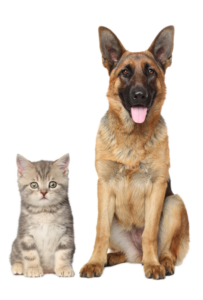We all love our pets, and we want the very best for them. We all can agree on that. Sometimes though, despite our best attempts, our pets ignore all our best intentions when it comes to their diets. Bagheera, my senior cat, was one great example of this. She loved everything and anything bad for her. Dropped a chicken nugget on the floor? She’d have that scarfed down immediately! Place some senior cat kibble on the floor; she’d sniff at it, look at me and turn her nose at it.
Now, I’m fortunate enough that I can pick our veterinarians brains regularly about the best thing to do about my picky princess. Bagheera turned into our sample girl. Anything with a guarantee? She’d make them work for that promise! I tried many a different variety to keep her diet healthy but also ended up developing some tips and tricks to get her to eat as healthy as possible.
- Meal feed her wet food – Bagheera was a grazer, and I would measure out her dry food for the day and often find some leftover. With her wet food, I found that leaving it out for her would lead to it being thrown out. With wet food, meal feeding worked best, so we developed a routine. Bagheera would get some wet food every evening when I got my supper. More often than not (especially, if it was a new flavour of canned food) it would be gone. Leaving out the food can cause it to dry up and lose its appeal.
- Warmed her wet food – Awhile back, I was fortunate enough to tour the Royal Canin factory. I find out some of the ways they kept their palatability up for the pickiest of pet. Did you know that like us, cats use their sense of smell to heighten their taste buds? However, unlike us, this is much more heightened. If you have a senior kitty, who doesn’t seem keen on their wet food. Pop it in the microwave for about 30 seconds, give it a good stir and make sure it isn’t scalding before presenting it to them. I found this helped when she suddenly decided she hated a flavour of wet food she once liked.
- Mix some broth in – Bagheera loved anything that had a gravy. I sometimes wondered if she just preferred to skip the chewing altogether! I even had her teeth checked by her veterinarian to make sure it wasn’t sore. But no, my girl just preferred extra gravy on everything! Unfortunately, with human gravy including onions, excessive fat and other unfriendly ingredients, I didn’t want just to mix that into everything. Instead, I came up with the idea of mixing warmed sodium chicken broth into her food. It worked very well! I know many of you are wondering about the tuna water trick for the picky kitty. Tuna did not agree with Bagheera’s tummy, and she would end up vomiting!
- Add a flavour booster – something fishy and smelly like tuna would be a good example for this. With Bagheera, since she enjoyed chicken nuggets so much, I would save a couple of pieces of shredded chicken and mix it into her wet food. I also used Fortiflora, an over the counter probiotic which she enjoyed the taste of! I would normally use a third of an individual package and sprinkle it on her wet food and sometimes her dry food as well. Other things you could consider are: flaked white fish, extra lean ground beef, or cat treats.
These four tricks definitely seemed to help with Bagheera’s appetite however there is no substitute for proper senior kitty nutrition. A senior cat has different dietary needs from a kitten or an active adult cat. A cat over the age of 7 years is considered to be a senior, and their caloric and protein needs differ as they start to age. Some senior cats had the opposite problem of my cat and would gain weight due to their inactivity. Some senior diets even include glucosamine to support joint health, increased omega fatty acids to assist with the brain, and fur health and a lower percentage of protein to support kidney health.
If you find yourself in the situation where you have switched over your cat’s diet to an appropriate senior formula, and your cat is losing weight or is less active, a visit to the vet is a good idea. Like us, cats can suffer from arthritis, kidney disease, diabetes and other ailments. Partnering with your veterinarian to monitor these changes can diagnose medical conditions early and allow you to provide them with the best comfort well into their senior years.
I was very fortunate with my Bagheera. Her veterinarian and I worked together to provide her with the best possible care. I noticed a huge difference when we started treating her arthritis. She wanted to play more, and look for opportunities to be in our backyard again!

Written by: Marwa Al-Alawi




